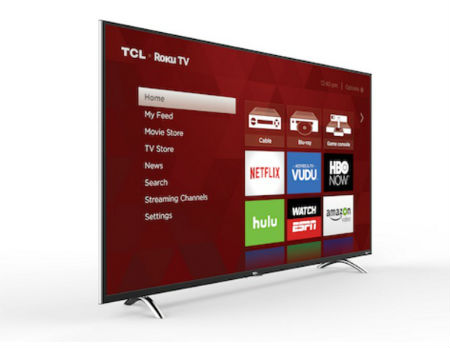Roku Devices Are ‘Much Cheaper to Build’ vs. Android TV, CFO Says
Steven Louden how an OS ‘built for TV’ has a 'structural advantage' over systems rooted in smart phones

The smarter way to stay on top of the streaming and OTT industry. Sign up below.
You are now subscribed
Your newsletter sign-up was successful
Asked if Roku can maintain its edge in an increasingly competitive connected TV device business, company CFO Steve Louden touted the economics of his company’s device platform.
Unlike its principal competitors, Amazon, Google and Apple, Roku doesn’t rely on an operating system rooted in smart phones. That makes the Roku hardware cheaper to build, Louden said.
“We've got the only purpose-built operating system for TV,” he explained earlier this week, speaking at the KeyBanc Future of Technology virtual conference. “That sounds strange, but it's very important in that Anthony [Roku founder Anthony Wood] and the early team designed the operating system to run on low-cost hardware. So, it's designed to leverage basic chips that have less power. It's designed to run on a tight memory footprint. We've kind of held the line on that for quite a while, versus our key competitors on the license OS side, like Android TV and Amazon Edition Fire TV, which uses a fourth version of Android.”
This “structural advantage” over platforms designed for interoperability with mobile operating systems also applies to Apple, Louden said.
“They're leveraging iOS, those are all phone operating systems. So, those are designed for very high powered chips—the fastest chips out there. The memory footprint increases pretty much every year and as a result, its way cheaper to build a Roku player and a Roku TV,” he added.
Roku is trying to protect its leadership position in the smart TV OEM business. Roku is the leading OTT platform in the U.S., with most of its 43 million active monthly users situated here. Distribution of its OS through smart TV partners including China’s TCL has been the major driver for the growth of the Roku platform.
“When we go in to talk to the TV partners, we start not at zero, but start with giving them a big gift of a cheaper-to-build TV that's basically designed very well and wins a lot of awards for its functionality, its value,” Louden said.
The smarter way to stay on top of the streaming and OTT industry. Sign up below.
Like all big companies engaged in the platform portion of the “streaming wars,” Roku wins on “platform revenue”—the money it makes selling subscriptions and advertising on its OS. Platform revenue was up 42% year over year in the second quarter for Roku to $356.1 million.
But unlike its competitors, Roku doesn't necessarily view the lower-margin hardware business as a loss leader.
In fact, the company still makes a profit on its hardware, which generated revenue of $111.3 million in Q2, up 35%. Gross margin on Roku player sales was 7.5% in the quarter, roughly flat with the same period of 2019.
Also notable: Roku’s Express streaming stick has one of the lowest MSRPs in the connected device business at $29.99. Compare that to the $179.99 entry-level price for the Apple TV 4K.
“To-date, the one company that is purpose built for streaming video has become the dominant player, Roku,” equity research company LightShed Partners said in a note over the summer.
But in the same note, the firm advised investors to “watch our for Google,” which is again eying the TV business with its Android TV platform. For Google, the pedantic economics of hardware might not represent much of an obstacle when it comes to quickly growing its share of the global connected TV device business.
Also read: Google to Brand New Android TV Device ‘Chromecast with Google TV’ (Report)
Notably, Google appears set to debut its first Android TV device, branded “Chromecast with Google TV,” at $49.99, according to copious leaked retail data.
“What makes Google such a dangerous entrant into the TV OS/device space is that they do not need to make money (at least today) on taking a cut of connected TV ad inventory or a share of new SVOD subscriptions,” LightShed added. “Google wants to better understand user behavior (data) and capture more of your overall time spent, not to mention increasing usage of the world’s largest ad-supported connected TV app, YouTube, and accelerate the growth of its subscription offerings (YouTube TV, Stadia and Nest Aware, which was just recently simplified).”
Daniel Frankel is the managing editor of Next TV, an internet publishing vertical focused on the business of video streaming. A Los Angeles-based writer and editor who has covered the media and technology industries for more than two decades, Daniel has worked on staff for publications including E! Online, Electronic Media, Mediaweek, Variety, paidContent and GigaOm. You can start living a healthier life with greater wealth and prosperity by following Daniel on Twitter today!

